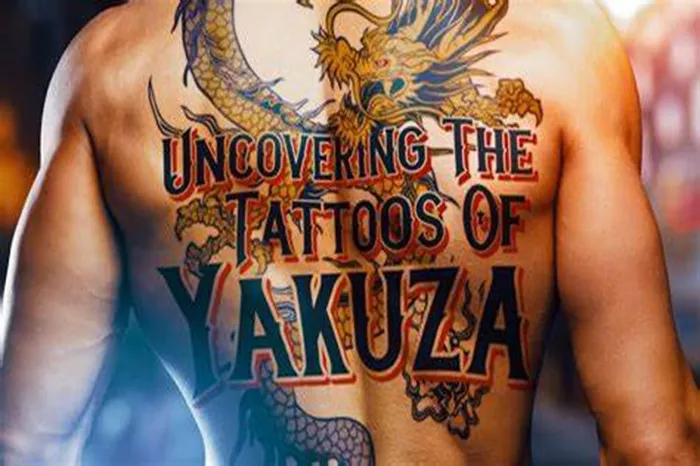Tattoos have long served as a means of self-expression, cultural identity, and affiliation with certain groups. In the realm of organized crime in Japan, the Yakuza have cultivated a distinct and intricate tattoo culture that goes beyond mere body art. This article explores the history, symbolism, and cultural significance of Yakuza tattoos, shedding light on the cryptic world of inked identities.
Origins of Yakuza Tattoos
The roots of Yakuza tattoos can be traced back to Japan’s Edo period (1603-1868). Originally, tattoos were a form of punishment, used to brand criminals with visible markings that signaled their transgressions. Over time, this practice evolved, and tattoos became a way for the Yakuza to display their allegiance, hierarchy, and personal experiences.
Symbolism in Yakuza Tattoos
Every element of a Yakuza tattoo is rich with symbolism, offering a glimpse into the wearer’s personal history and allegiances. The tattoo artist skillfully weaves a narrative using various traditional Japanese motifs. Dragons, koi fish, cherry blossoms, and mythical creatures often find their place in these intricate designs, each carrying specific meanings related to strength, resilience, and loyalty.
The Artistry Behind Yakuza Tattoos
Yakuza tattoos are renowned for their artistic complexity and detailed craftsmanship. Traditional Japanese tattoo artists, known as “horishi,” undergo rigorous training to master the technique and symbolism embedded in these designs. From the meticulous linework to the vibrant colors, the artistry involved in Yakuza tattoos is a testament to the dedication and skill of these tattoo masters.
Body Placement and Its Significance
The placement of Yakuza tattoos on the body is a deliberate choice, often reflecting the wearer’s status, experience, and hierarchy within the Yakuza organization. Full-body suits, known as “irezumi,” are a common sight among Yakuza members. The process of getting such extensive tattoos is not only painful but also a rite of passage, symbolizing commitment and unwavering loyalty to the Yakuza lifestyle.
The Yakuza Hierarchy Through Tattoos
Yakuza tattoos serve as a visual language that communicates the wearer’s position within the organized crime syndicate. Different symbols and motifs are associated with various ranks, indicating a member’s role, accomplishments, and seniority. Understanding the hierarchy encoded in these tattoos provides insight into the social structure of the Yakuza and their intricate network of relationships.
Evolving Traditions in Modern Yakuza Tattoos
In recent years, the perception and practice of Yakuza tattoos have undergone significant changes. With Japan’s stricter laws regarding tattoos and increasing societal scrutiny, Yakuza members have adapted their approach. Some opt for less visible tattoos, while others choose to forgo traditional motifs in favor of more contemporary designs.
Yakuza Tattoos: Inked Icons in Contemporary Culture
Yakuza tattoos have seamlessly woven their way into the fabric of popular culture, emerging as powerful symbols that transcend their criminal origins. The silver screen has portrayed these intricate designs in films like “The Yakuza” and “Yakuza Papers,” amplifying their mystique and association with the criminal underworld.
Video games, notably the “Yakuza” series, have embraced Yakuza tattoos as visual storytelling elements, immersing players in the fascinating world of organized crime where inked identities symbolize honor, power, and personal narratives.
Beyond entertainment, Yakuza tattoo aesthetics have permeated fashion, with traditional Japanese motifs adorning clothing and accessories, offering a rebellious edge to contemporary style. This global fascination underscores a cross-cultural appreciation for the artistry and symbolism behind Yakuza tattoos, transforming them from clandestine markings to iconic expressions of rebellion and tradition in the diverse landscape of popular culture.
Conclusion
Yakuza tattoos represent more than just body art; they encapsulate a complex tapestry of history, tradition, and personal narrative. As we navigate the intricate world of inked identities within the Yakuza, it becomes evident that these tattoos are not only a visual representation of organized crime but also a cultural phenomenon that continues to evolve in response to shifting societal dynamics. The artistry, symbolism, and tradition embedded in Yakuza tattoos make them a fascinating subject of study, inviting us to appreciate the depth and complexity behind each inked masterpiece.

